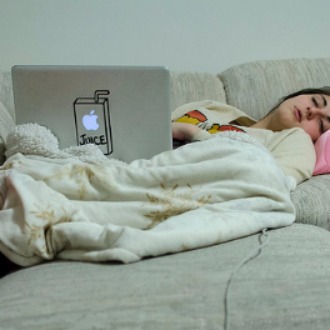A one-hour session of cognitive behavioural therapy was able to ‘cure’ almost three-quarters of people suffering from acute insomnia, UK researchers have reported.
Their study in the journal Sleep found 73% of patients who received the treatment reported their quality of their sleep had returned within three months.
This compared with 15% of people who had also recently developed insomnia but did not receive cognitive behavioural therapy (CBT).
The team said offering people CBT when they begin having sleep problems could prevent them going on to develop chronic insomnia – and other resultant conditions such as depression.
The study included 40 adults who had suffered from insomnia for less than three months and who were not currently taking medication to help them sleep. All the patients completed sleep diaries and the Insomnia Severity Index, and then half were given the one-hour CBT session and a self-help pamphlet to read at home.
The CBT session covered sleep education and individual differences in ‘sleep need’, followed by prescription of times to go to bed and rise.
Professor Jason Ellis, professor of sleep science at Northumbria University, said: ‘There are numerous advantages to treating insomnia during an acute phase. If successful there is potential for significant savings in terms of long-term healthcare, lost productivity and accidents.
‘This becomes more pertinent when the costs associated with other illnesses, such as depression, for which insomnia is known to be a risk factor, are taken into account.’
Sleep 2015; available online 1 June

















